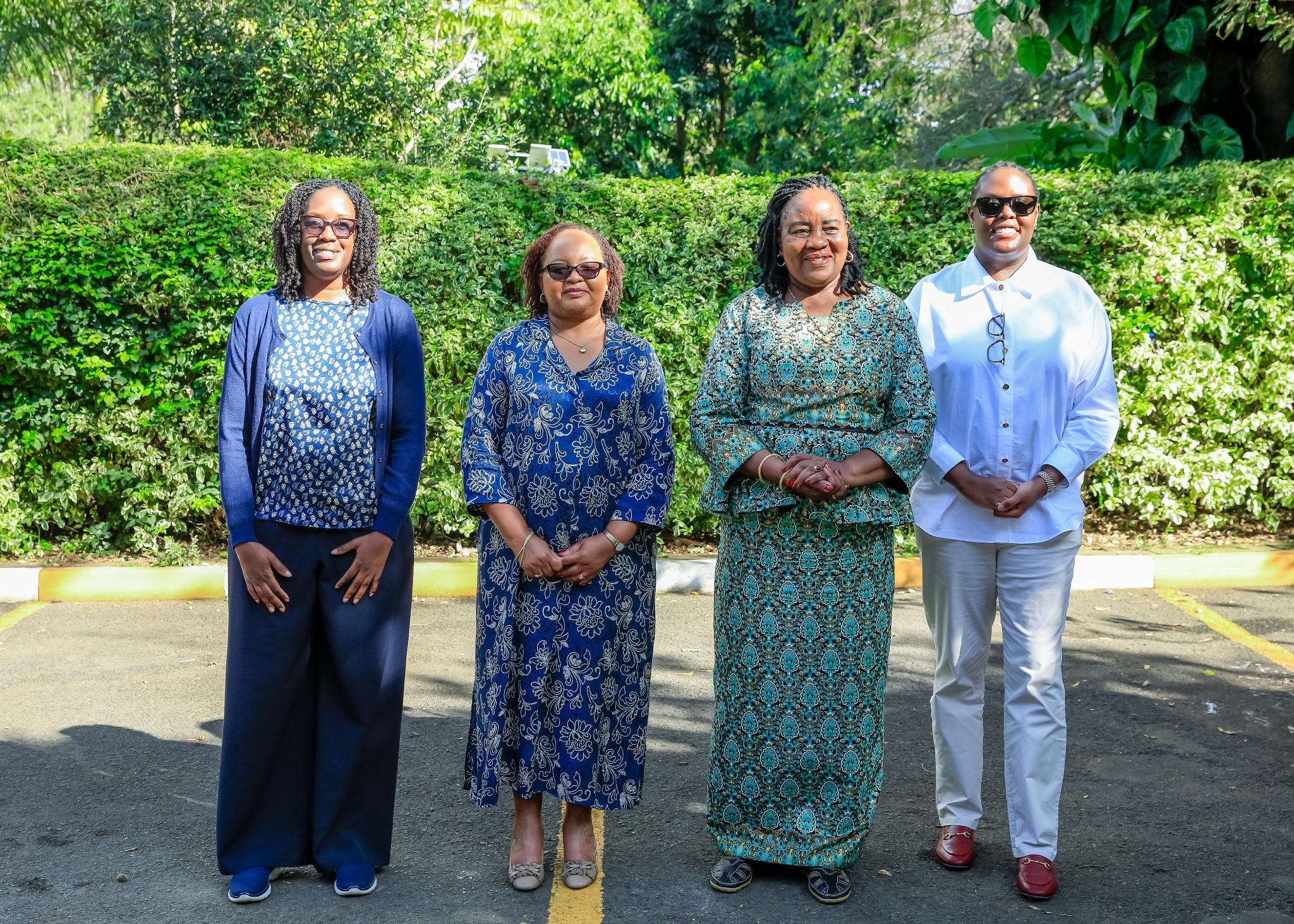As vaccines have become more widely available and accessible in communities, an increasing number of people have become complacent about the other precautions they should take to protect themselves from the virus.
People are no longer wearing masks in public, despite the fact that it is required. The strict COVID-19 measures implemented at the start of the pandemic have since been relaxed, but the basic preventive measures — frequent handwashing, mask use, and physical distance — remain in place.
While each Covid-19 intervention is ineffective on its own, combining them all is the best way to reduce the risk of contracting and spreading the virus.
Regardless, ordinary citizens and leaders continue to disregard these measures. The self-appointed 'mask police,' for their part, have relaxed their arbitrary enforcement of this guideline. As before, they are 'enforcing' the rules in order to extract bribes from citizens. The government's messaging has remained consistent but despite this, misinformation has grown in this information vacuum.
Nelly Madegwa set out to debunk some of the social media claims about wearing masks and explain why we must continue to take these basic precautions if we are to stop the spread of the virus.
The COVID-19 virus is airborne meaning it spreads through the air like the cold and flu viruses. The virus is constantly evolving, and new variants emerge, necessitating a shift in our behavior as scientists learn more about the infection. "Not only is the delta variant more contagious than other versions of the disease, but it has also been shown to spread among people who have been vaccinated." The same can be said for the omicron variant, which also affects vaccinated people. This variant appears to be less lethal than delta, but it is still lethal.
When used properly, high-quality masks can protect you from the virus or prevent it from spreading if you are infected. Experts are concerned about silent spreaders, or people who are infected but do not exhibit symptoms.
'Since there is a potential for breakthrough infections among the vaccinated, public health measures against COVID-19 infections are still key, both to the vaccinated and unvaccinated. With close to impossibility of keeping safe distance among the Kenyan population due to our social structures, masks and handwashing remain to be relatively safer methods to be implemented. Masks will protect; the vaccinated, since the probability of breakthrough infections and disease are reduced and the unvaccinated from infections both from the unvaccinated and the re-infected vaccinated.
Therefore even with vaccination, failure to ensure the safety measures is still a great exposure to both the vaccinated and the unvaccinated.
“If vaccinated people do not continue to wear masks until more people are considered fully vaccinated, the virus will continue to circulate," Dr Eddy Odari says.
Why should I wear a mask after getting vaccinated?
By January 16, only 17.3 percent of Kenya's total population had been fully vaccinated. Millions more people have yet to receive the vaccine, leaving us vulnerable to the pandemic.
Unvaccinated people include the elderly, immunocompromised people (those with comorbidities such as cancer, HIV/AIDS, or diabetes), children under the age of 15 who are not eligible for vaccines but can still get and spread the virus, and people allergic to any of the vaccine's ingredients who can still get and spread the virus. Wearing masks is the only way to protect themselves and others from the virus.
Masks are also required for those who have been fully vaccinated but whose immunity has been compromised by other diseases such as heart disease, cancer, and HIV/AIDS. When compared to those whose immunity is not compromised, the COVID-19 vaccine may not elicit a strong immune response in immunocompromised individuals.
'The breakthrough infection is less severe among those who have received vaccination or infected within the last 2 - 3 months than those who have never been vaccinated, or with no history of previous infections.
However, we must also note that the degree of breakthrough disease will also vary among the different groups within the already vaccinated. For example, those with underlying conditions as well as those with diminishing immunity like the elderly are more likely to experience relatively severe breakthrough disease compared to the vaccinated immunologically competent persons. '
Wearing masks in outdoor or indoor settings protects you as well as those who are not immunized. It may also protect those who have already received the vaccine but for whom the vaccine was ineffective.
The available vaccines are also not 100 percent effective—how the vaccines perform in the real world versus when tested in controlled clinical trials under ideal conditions. Vaccines are typically slightly less effective in the real world. Scientists describe the phenomenon using specific terms. The protection provided by vaccines in clinical trials is referred to as "efficacy," whereas the actual immunity seen in a vaccinated population is referred to as "effectiveness."While the COVID-19 vaccine is highly effective, it does not provide complete protection, and as a result, a small number of people will still become infected with the disease. The vaccine, on the other hand, significantly reduces the risk of severe symptoms and even death.
He explains that it can take up to two weeks for the vaccines to provide infection protection. The two-dose vaccines provide only partial immunity after the first dose, so you can still become infected with the virus.
"However, even if you are fully vaccinated, you should continue to wear masks, wash your hands, and avoid crowds," Dr. Eddy Odari advises and urges people to get vaccinated.
Should children wear masks?
Masks are especially important for children who are too young to receive the vaccine. "Children rarely develop severe symptoms as a result of COVID-19 disease , in most cases they are asymptomatic yet they can still spread the virus ." "However, as more data on the vaccines becomes available, this may change," . world health organization advices
children 12 years and above to wear masks under the same conditions as adults, while those between 6- 11 years should wear masks based of a few factors including whether there is widespread transmission in an area where the child resides, specific settings like at school and interactions the child has with other people who are at high risk of developing serious illness and ability of the child to safely and appropriately use a mask. For children aged 5 years and under they should not be required to wear masks and this is based on the safety and overall interest of the child the capacity to appropriately use a mask with minimal assistance. Wearing well-fitting face masks lowers the risk of contracting COVID-19 and spreading SARS-CoV-2, the virus that causes COVID-19. Children over the age of two should wear masks when out in public, traveling, or attending school. If you have an at-risk adult in your home, such as an elderly person or someone whose immunity is compromised by underlying health conditions, masks should be worn around children who are medically fragile. At the moment, no one under the age of 15 is eligible for the vaccine.https://www.youtube.com/watch?v=6lEPAPxh-ec
Numerous studies have been conducted on the efficacy of masks in preventing individuals from getting infected with and spreading the coronavirus. These studies have reaffirmed that wearing masks that fit properly is effective in protecting yourself from getting infected.
You are also advised to double mask when out in public or consider upgrading your mask as new, more contagious variants of the novel coronavirus spread around the world.
“Some of these new variants are more contagious than others. Scientists are still trying to understand whether the infected person is shedding greater quantities of virus, or whether fewer viral particles of these variants are enough to make you sick. Either way, a more contagious virus means you need to wear masks that can trap the infectious particles and stop them from spreading,” Dr Eddy Odari advises. A double mask could consist of a single-use surgical mask underneath and a cloth mask on top to offer extra protection especially if you are around people who are not wearing masks.Masks should fit snugly to provide maximum protection.
Masks will stop us from breathing in the virus and it getting into our bodies in the first place , while vaccines are essential Omicron shows vaccine protection is limited and we will constantly be playing catch up with this highly mutating virus.
“This article was produced by the Africa Women’s Journalism Project (AWJP) in partnership with Article 19, Meedan and the International Center for Journalists (ICFJ).”














